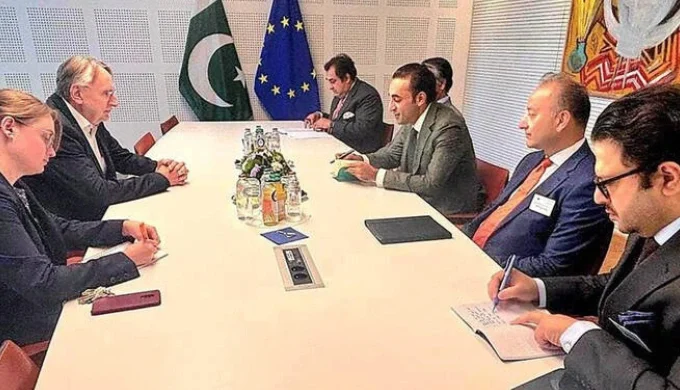The death of Henry Kissinger, architect of the foreign policy of two American presidents, closes an era of strategic thinking. A new era, that of brute force, disguised under various names, begins. The Kissingerian peace between the West and Russia is disappearing, and that with China is only being maintained with difficulty. Other fault lines are now gaping: the Shiite bloc against the Sunni bloc, Israel against the amalgam of Arabs, Shiites, regimes of the Global South and the Western left. Africa is half lost for French prestige and for our fight against jihadism which was the main reason for our presence. In addition, Europeans were pushed out of Mali and Burkina Faso. Ethnic micro-oppressions are multiplying: Burma, India, Afghanistan, Armenia, China, Sahelian Africa, Gaza, Israel, West Bank, Afghanistan, Yemen, Ethiopia, Congo… Migratory flows have become incessant, the result of the bankruptcy of many economies in the Global South. On the bright side, democracies have not collapsed, and the fight against climate change is getting organized.
Kissinger’s legacy in the year 2024 remains fascinating because he shaped the world which is now disintegrating at full speed. He would have wanted it to be immutable. The professor and writer, who admired the tragic lucidity of De Gaulle who sought balance, left works that can be read with profit. His theory, developed especially after his departure from business, is a modern adaptation of the notion of “balance of powers” dear to Metternich. In two notable works, Diplomacy and China, he advocates this balance of great powers. If medium-sized states can weigh a little in the global balance, small, weak states only have the choice between lining up behind a large one, or waiting to be orbited. For Kissinger, Charles de Gaulle remained one of the last Europeans trying to reverse national decline. An attempt at tragic lucidity, masterfully attempted but impossible, according to an admiring Kissinger in his latest book Leadership: Six Studies in World Strategy. Curiously, Kissinger saw in Konrad Adenauer another strategic “leader”. However, the Adenauer-De Gaulle tandem did a lot to boost European construction which, for the old anti-Nazi Christian Democrat that Adenauer was, reestablished Germany at the forefront of the international scene. To these two leading figures, Kissinger’s volume adds four others: Margaret Thatcher, Lee Kuan Yew (prime minister of Singapore from 1959 to 1990), Anwar el-Sadat (president of Egypt from 1970 until his assassination in 1980), and Richard Nixon. Four of them worked in tandem: Adenauer-De Gaulle and Nixon-Sadat. We could even imagine a convergence between contemporaries Lee and Thatcher. We run one country largely according to another, according to our diplomat professor, and Kissinger especially remembers the successes. History for him does not need great terrible destroyers like Hitler, Stalin, Mao, Pol Pot, and to a lesser extent Nasser or Castro. But politics requires us to talk to some of them.
He had to deal with five heavy files from 1969 to 1977. That of Vietnam was entirely swept away by the North Vietnamese betrayal and the destruction of the South Vietnamese state in 1975. That of the secret negotiation with People’s China produced the balance current. The Yom Kippur War in 1973 was successfully resolved. The fight against Marxist regimes in Latin America was a total success, albeit undemocratic and repressive. If the general containment of the USSR was achieved, it was not without cost, because it was necessary to give more importance to China which was still convulsed by the Cultural Revolution. In Latin America, the finally advent of democratic regimes with moderate leftism, including Lula’s Brazil, did not undermine the success of Kissingerian policy, because there was no longer a USSR to unite them against the United States. United. So three successes, one failure vis-à-vis the USSR, and a disaster in Vietnam.
Who would be the leaders capable of leading a global strategy today? Kissinger anchors his thinking in historical reflection that begins in the middle of the 19th century. The powers were quite similar, all royal except France, and they wanted to demonstrate their legitimacy against the Republicans, against the liberals, against the Bonapartists eager for expansion, and even against the nascent socialists. The First World War showed to what extent these powers were unable to preserve their balance, obsessed with the idea of being downgraded economically and militarily by any one of them. A war which only produced the feeling of having survived (France, Belgium, United Kingdom), of having been frustrated (Germany, Italy), or of having been born (the USSR and even the United States on the geostrategic plan). The Second World War was more of an ideological madness, and the history professor attached great importance to various ideologies and their strategic consequences. Today, only certain politicians follow this vision, such as Kevin Rudd, former Australian Prime Minister (2007-2010; 2013) and sinologist with unparalleled knowledge of Xi Jinping.
Kissinger undermined the validity of the concept of geopolitical determinism, whose Germanic Geopolitik so dominant under the Second and Third Reichs and whose obsession with controlling the Eurasian land masses essential to planetary domination led to vast destruction. For Kissinger, the true nature of a state is not that of an aggregate of land and populations placed at the disposal of ideologues, but rather an organism whose goal is to survive through successful wars, alliances and buffer states. This organism secretes an ideology, and therefore a geopolitical vision that results from it. The economic factors come down to raw materials and energy sources, which must be secured even by force. He is only interested in powerful states capable of imposing themselves. The good military strategy of such a power comes down to a global presence, via naval and air bases, and an ability to project combat forces. The USSR was the only existential danger he had to face during his eight years in power.
Thus the link between military power and the possession of land did not obsess him, because the great powers already had an adequate territorial base. South Vietnam only interested him as an area to be banned from Soviet communism. On the other hand, the presence of a communist Cuba hardly worried him since it was involved in a game of global balance and the USSR was also surrounded by NATO countries.
If Kissinger were in power today, he would have been greatly shaken by the attitude of Putin’s Russia, clearly driven by adventurism on a very large scale. It is difficult to imagine the NATO bloc, and the Russian Federation, negotiating a partition of Ukraine to avoid a war. We did not imagine this war; and even the Russian-Ukrainian conflict of 2014 did not give rise to pessimistic conclusions. The professor himself suggested that he had a preference for a non-aligned Ukraine: the famous buffer state, Finlandization.
However, from the start of the Russian invasion in 2022, Kissinger distanced himself from his previous attitude. Facing Russia, he understood that the aspiration for imperial power was constant in its history, and that Vladimir Putin was filled with this feeling to the point of making the worst mistakes. Ukraine was going to be the new Vietnam. He had met Putin a dozen times, and the Russian president was always impressed by the atypical thinking of the former secretary of state. In 2022 Kissinger had to change his mind about Putin: no, the invasion was not rational, and it completely upset the balance. Kissinger admitted his mistake in not having foreseen the Russian invasion. He had to recognize that the combativeness of the Ukrainians was changing the situation, and that the West had to help them reconquer their territory, otherwise imperial expansionist adventures would multiply all over the world. Let us emphasize how sudden and radical this change of heart was. The professor has always tried to understand the psychologies of leaders. He himself had understood that of Nixon, and subsequently thought he understood that of all the supreme leaders of the great powers. He may never have fully understood Putin. Is the latter really a servant of his own state, or a simple ambitious conqueror? In the long run, the professor would probably have accepted the idea that, from now on, ambition, adventure, above-ground ideology, are heavy factors. Rationality will above all serve these ambitions.
As for the Middle East, Kissinger understood how the Israeli victory in the Yom Kippur War (1973), snatched from near defeat, was a humiliation for the Arab states. This is why observers tend to believe the former Secretary of State when he claims to have prevented the Israelis from marching on Damascus and Cairo. Allow me to doubt such an Israeli intention: the Israelis had absolutely no capacity to hold Arab megacities in countries that still had technologically modern armies. We must remember this: Nixon and Kissinger prevented the USSR from getting involved in the conflict by putting them on nuclear alert. The two sidekicks in the White House had the flair to spare the self-esteem of Anwar el-Sadat and Hafez al-Assad (president of Syria from 1971 to 200), so that Sadat at least was transformed as a good ally of Washington and signatory of the historic peace with Israel after speaking in the Knesset! The greatness of Sadat and the symbolic elegance of Menachem Begin counted greatly in this happy outcome. With the current hostility of Fatah and especially Hamas, no comparable outcome is possible today, and the rational progressive ideology of Anthony Blinken is unsuitable for the two belligerents who each dream of annihilating the other.
The Israel-Hamas war is the surprise element which pits Islamist barbarity against an Israel with just but costly revenge in diplomatic and human terms. Here, Kissinger’s reading would offer no solution: Hamas does not aspire to be a state. Yahya Sinwar, the de facto ruler of the Gaza Strip, cannot be confused with Anwar Sadat, or even with Egyptian leader Abdel Fattah al-Sisi. The elegance of the peace of Camp David in 1978 is impossible today. This Yom Kippur War, with very few civilian casualties, did not induce in Israel any hereditary hatred towards the Egyptian or even Syrian army, and yet the danger for Israel’s survival was greater then than today.
On China, the former Harvard professor had reasonably well understood the functioning of the Communist Party, as well as the way of reasoning of Zhou Enlai, Mao Zedong, Deng Xiaoping, and finally Xi Jinping. Communist Chinese in particular, and Chinese strategists in general, think through equations, very long-term calculations and symbolic actions. Did Kissinger, however, understand the danger of massive investments of Western capital in the 1990s and 2000s? This accelerated the giant’s takeoff. Kissinger’s thoughts did not dwell on this new fact, except to clearly see the danger of artificial intelligence.[i] The Chinese communist leaders seemed to understand that Kissinger was no longer up to date, hence their almost veneration. -caricatural and possibly ironic of the former Secretary of State. Coming to terms with the People’s Republic of China without giving in was feasible in 1972, but since the advent of Xi Jinping, it has been inconceivable.
The surprise of 2023, and it is a bad development from the French point of view, is finally West Africa. Half as much French presence and twice as many Islamic and ethnic insurgencies. Mali and Burkina Faso will soon reveal themselves as faltering regimes whose mere presence of Wagner guarantees some ephemeral successes against a backdrop of exodus of Sahelian populations, Fulani and Tuareg in particular. For this Africa, any European-style modernization project is now compromised. She will experience the miseries of juntas flanked by mercenaries trying to stop the jihadist gangrene against a backdrop of rivalry between nomads and sedentary people and global warming. Paris, even with some Western aid, was too weak either to carry out real economic “nation-building” or to impose one military-ethnic clan to the detriment of others. The African armies wanted victories, Paris was holding them back, so they expelled our soldiers in order to wage their clan war using mercenaries.
Let us point out some positive aspects of the past year. The European Union has strengthened itself strategically, even if the question arises about its legitimacy and its purpose. Tensions between Western and Eastern Europe have diminished a little, everyone is getting used to it, and Poland has returned to the Western camp with the electoral defeat of the conservative coalition in power , the PIS. In terms of climate, the transition is taking place, with slow but real steps. The electrification of the automobile fleet is making leaps in Europe, while it is stalling in America. The pleasant surprise is the participation of the People’s Republic of China in major climate decisions. Beijing has dissociated the climate from the strategic issue in the South China Sea and the Taiwan Strait. The BRICS have emerged, but the total lack of unity between India and China greatly reduces its anti-G7 aspect. Indian power is to be followed, still immature but certainly growing and anti-Chinese.
In fact, global stability would be possible if the Russia-Ukraine war were resolved, as well as the Israel-Hamas war. The United States will have to play a central role, and it is the outcome of the American elections in November that will have the last word. Beyond the grave, Kissinger will once again understand how the American electorate, which demanded the abandonment of South Vietnam, could elect a president with existential choices to make for Ukraine and Israel.
This article is originally published on causeur.fr








